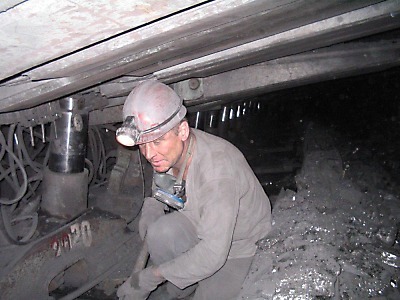Environmental officials in West Virginia and the state’s influential coal industry are locking horns with the U.S. Environmental Protection Agency (EPA) over the Obama administration’s crackdown on mountaintop removal mining.
State, EPA in Conflict
In the latest dustup involving coal, EPA has imposed more stringent reviews for permits allowing mining operations to use mountaintop removal to get at valuable low-sulfur coal reserves. Under the procedure, hilltops or mountaintops in Appalachia are blasted away to allow men and machines to extract the coal efficiently.
The dirt, rocks, and other debris are shoved into nearby valleys, a process known as valley fill. Some of the valley fill winds up in streams, triggering a permitting process under the Clean Water Act.
Hoping to avoid further EPA intervention, regulators at West Virginia’s Department of Environmental Protection (DEP) issued new water quality guidelines in August. DEP’s new policy would require more elaborate toxicity testing downstream from mining operations. Also, mining operators would have to show proposed mines would not have a “reasonable potential” to cause “significant adverse impacts” on aquatic ecosystems.
Lawsuits Begin
West Virginia DEP Secretary Randy Hoffman has urged EPA to go along with West Virginia’s new policy rather than impose federal guidelines. Hoffman told the Charleston Gazette he is not “trying to pick a fight” with EPA, but added if federal officials didn’t find the state’s new policy acceptable, “I guess we’ll have to see what happens,” in an August 12 story.
For its part, the National Mining Association (NMA) is picking a fight. NMA has sued EPA over the agency’s mountaintop removal policies. DEP may not be far behind. The state agency is reported to have retained outside lawyers in anticipation of legal action against EPA.
EPA—no stranger to either controversy or lawsuits—likewise appears to be girding for a fight. In April the agency announced new electrical conductivity guidelines designed to force coal operators to reduce discharges of chlorides and dissolved solids that could harm aquatic life. DEP criticized EPA’s initiative as an “overbroad, generic criterion … to set unattainable limits,” while saying its alternative new guidance “will result in changes that are markedly different from the way mining has been conducted for the past 30 years.”
Higher Electricity Prices Expected
The ball is now in EPA’s court, and analysts say if EPA decides to press the matter, utility customers will see the results in their electric bills.
“Coal is America’s most plentiful natural energy resource,” said former Virginia Senator George Allen, chairman of the American Energy Freedom Center. “Affordable, reliable electricity generated by clean coal technologies is essential for our quality of life.
“Unnecessary burdens imposed on American coal will mean fewer jobs, a less competitive country, higher electricity prices, and a lower standard of living,” Allen added.
Bonner R. Cohen, Ph. D. ([email protected]) is a senior fellow at the National Center for Public Policy Research.





